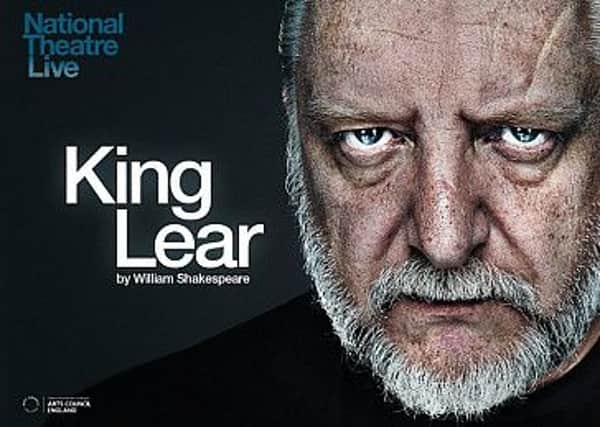Staging Shakespeare’s Globe, globally


Katie Driscoll spends the evening in a cinema watching a play, and considers whether the new wave of quasi-live entertainment works
Time was where you donned your white gloves and top hat, best tux and evening gown.
Advertisement
Hide AdAdvertisement
Hide AdYou partcipated in a centuries-old cultural tradition, fawning to view a speck a million miles away from the back row, while straining to hear the 400-year-old words recited by a rich, posh, middle-aged guy pretending to understand the nuances of Elizabethan culture.
All for the chance to pretend you can tell the difference between heartbreak and happiness in Italian (opera, anyone?).
Now, a new era has been launched in the cultural sphere; the evolution of live theatre, not in the moment but on the silver screen.
You can pay a measly cinema ticket price and experience an evening’s worth of live art, and the so-called ‘digital revolution’ has made this all possible, and simultaneously, made theatre more accessible.
Advertisement
Hide AdAdvertisement
Hide AdClassic plays, ballets and operas have been brought to the screen but now it’s spreading – alternative comedy, concerts and even art exhibitions.
Shakespeare’s Henry IV, Coriolanus, Terry Gilliam’s Benvenuto Cellini, the D-Day 70th Anniversay Concert, Danny Boyle’s inspired version of Frankenstein and even an extraordinary backstage view of the Matisse exhibition at The Tate are all being broadcast to the provinces at the multiplexes.
Even musicians are getting their chance to shine with music-docs such as folk-warblers The National’s Mistaken For Strangers (titled with a lyric from one of their own songs), and national treasure of the north Pulp’s A Film about Life, Death and Supermarkets.
Shakespeare’s King Lear is set to be the latest brought from the stage at the National Theatre in London to the screen, directed by Sam Mendes of American Beauty and Revolutionary Road fame, starring Simon Russel Beale as the eponymous Lear, an aged and irascible king who decides to split up his kingdom between his daughters.
Advertisement
Hide AdAdvertisement
Hide AdAs I take my seat and the lights dim, the atmosphere is no less electric than the buzz of the theatre – without the pressure of expectation.
Being in a cinema is oddly comforting, and takes away all the stuffy connotations the theatre unfortunatly has.
There is no asinine repetitive thought of “God. I really hope I enjoy this. Please let me enjoy this. If I don’t enjoy this I’ll feel like the stupidest, most uncultured person in the entire world who doesn’t understand what literally THOUSANDS of people claim is good. Even great. God”.
Choosing the cinema rather than the live thing proves more comfortable, relaxing and makes so-called high brow entertainment seem as normal and easy as it should be.
Advertisement
Hide AdAdvertisement
Hide AdIt certainly widened my eyes to just how similar film and theatre are – the theatre, after all, was both the highest and lowest form of entertainment back in the old days, just as film nowadays can be a high vessel for emotionally-impacting art and the place where Adam Sandler causes brain atrophy.
It ensured that I could just enjoy what was there right in front of me; in a place I had a lot of experience in and therefore did not feel “out of place”.
The general feeling, of watching this performance in the cinema, is that I was up there, on stage with the actors.
It allowed me to notice details – inflections in their voices, certain looks that changed and codified entire moments– that I would not have been able to take away, miles away in the stalls.
Advertisement
Hide AdAdvertisement
Hide AdThe decision to bring these experiences outside of the walls of the theatre is supported by Nesta and the Arts Council England, who see it as an initiative “to make art more accessible and to create a new audience for the theatre, drawing on the medium’s relationship with film”.
Cinema does, after all, have a much better reputation than theatre – which is often seen, particularly by young people, as staid and archaic, or even just “uncool”.
Watching theatre in the cinema takes away those old connotations and gives young people the chance to actually discover it outside of the confines of say, school.
It also proves much better value for your pocket, especcially when you live miles away from anywhere as cosmopolitan as London or Manchester.
Advertisement
Hide AdAdvertisement
Hide AdIt is a move becoming typical of the internet age – if you can’t go to something, if you have an appetite for a live cultural experience, it can be brought to you – just as through your computer or phone nowadays you can virtually be anywhere.
It is a remarkable new initiative, one that has virtually transformed the form of art as we know it – theatre before only being accessible in “the present moment” and making it omnipresent, lasting, just as film is forever in the past.
It may not bring in hoards of new devotees or dilentantes, but it is enough, a stepping stone towards what art can do for everyone, not just those brought up well versed in it, and a testament to the ever-changing, vigorous pervasiveness of art in the technology age.
Some of the highlights include:
Preston Vue
June 12: A Small Family Business
July 17: Skylight
September 4: Medea
Chorley Little Theatre
June 12: A Small Family Business
Preston Odeon
June 12 A Small Family Business
July 17: Skylight
September 4: Medea